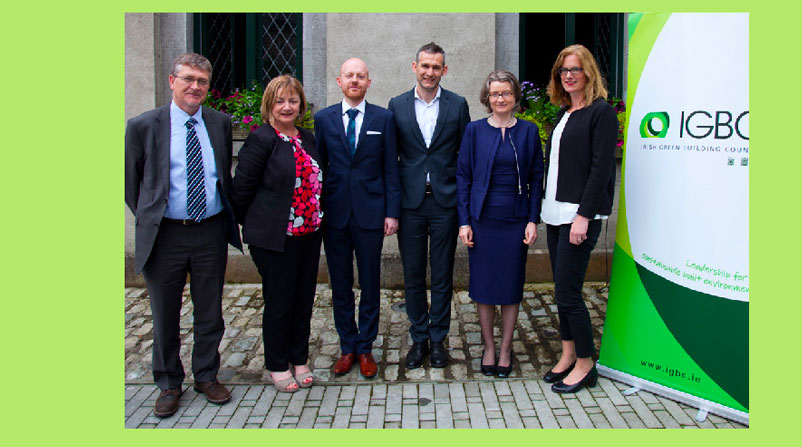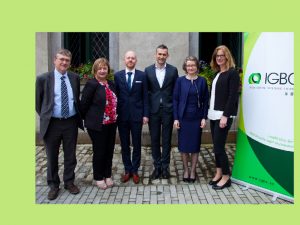Setting Example on Climate Change
Senior representatives from the public and private sectors, NGOs and academia met in Farmleigh House, Dublin, to discuss the need for deep retrofit of public buildings.
Buildings have a large part to play in the abatement of greenhouse gas emissions in order to meet our Climate Change targets, as well as reducing our reliance on imported energy. Every year the public sector spends €600 million/year on energy. More specifically, the 10,000 buildings in the public sector are responsible for approximately 50% of that amount.
Pat Barry Executive Director of the Irish Green Building Council commented: “Although these figures may seem small, the diversity of buildings, mean that it’s a microcosm of what will need to happen in other sectors. The public sector must act as “role model” in that area, showing all sector what is possible”.
[rev_slider Surety]
Specific issues discussed on the day included behaviour changes and employee’s engagement. Conor Clarke, head of the energy-conservation unit at the OPW explained: “With regard to energy conservation in buildings, an area often overlooked is the potential savings from encouraging behavioural change of the building occupants, optimising the existing control systems and eliminating energy wastage. Over the past number of years the OPW has been targeting these savings in its portfolio of buildings. The results have been very impressive (currently approximately 20% energy savings per annum) with a very high return on investment (4 to 1)”.
A number of business models to scale up the level of renovation in the public buildings sector were also explored. Glyn Mountford Business Development Lead at Re:Fit delivered a detailed presentation on this award winning collaborative scheme. Launched in 2009 by the Mayor of London, Re:fit helps organisations such as local authorities, schools, universities, NHS trusts, leisure centres and museums in making savings of between 15 and 30 per cent.
WS2: Glyn Mountford, Business Development Lead, Re:Fit – Majella Kelleher, Head of Energy Management, SEAI – Chris Botten, Programme Manager, Better Buildings Partnership – Richard Bull, De Montfort University, Leicester City Council – Employees’ Engagement Experience – Rebecca Minch, Energy Efficiency & Affordability Principal Officer, Department of Energy – Lisa Ryan, Senior Researcher, UCD.
Today’s event was the fourth of six high level Building Renovation Workshops organised by the Irish Green Building Council and supported by the Department of Climate Change, Communications and Natural Resources, as part of the European Commission funded ‘Build Upon’ Project.
The aim of the Build Upon project is to bring together a diverse range of organisations to collaborate to support government in designing an ambitious national renovation strategy for Ireland. This strategy is required by 30 April 2017 under EU law.
A number of the participants expressed their views on what an ambitious national renovation strategy could achieve and the role the public sector should play.
According to Dr. Tony Day Executive Director of the International Energy Research Council (IERC): “High quality building renovation is a national imperative. If the public sector go ahead with this and lead by example, it can help be a catalyst for that change”.
[rev_slider Stel]
Paul Kenny, CEO of the Tipperary Energy Agency added: “Designing an ambitious national renovation strategy makes sense on many levels. Retrofitting not only offers a viable solution to reducing our greenhouses emissions, it can also offer associated cost, comfort and environmental benefits.”
The Irish Green Building Council (IGBC) is Ireland’s leading authority on green building best practices with a network of over 80 green building organisations spanning the entire built environment industry. The IGBC is affiliated with the World Green Building Council. This is a network of over 100 national Green Building Councils worldwide with a total membership of over 27,000 of the most progressive international organisations and businesses making it the largest organisation globally influencing the sustainable building market.


